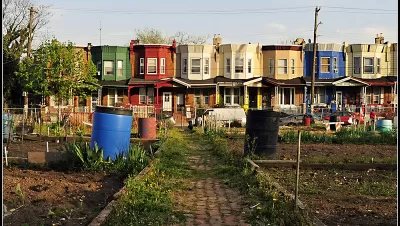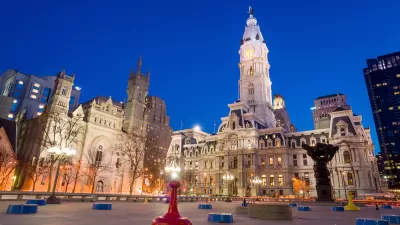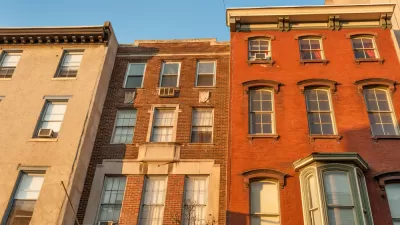Jonathan Geeting argues that Philadelphia’s recently proposed affordable housing program is focusing on the wrong problem—in Philadelphia, housing is quite affordable, but people are still too poor to afford it.

“While it’s always good to see well-meaning city leaders engaging with housing affordability and cost of living issues, the big problem with Clarke’s plan is that the housing affordability ‘crisis’ he’s worrying about doesn’t actually exist,” writes Jonathan Geeting in a recent article that gives a detailed examination of a recently announced affordable housing proposal by Philadelphia City Council President Darrell Clarke.
“The housing itself is quite cheap here compared to most of Philadelphia’s peer cities. The real issue is the 28.4 percent poverty rate, one of the highest in the nation. Cheap as the housing is in absolute terms, a sizable segment of the population still doesn’t earn enough money to afford it.”
According to Geeting, the distinction “matters a great deal, because mistaking the poverty problem for a housing market problem biases the political response toward some needlessly expensive and low-impact policies.”
The article provides detailed analysis of the cost of housing in several Philadelphia neighborhoods—including some of those mentioned in Clarke’s reports—all of which are affordable enough that, according to Geeting, they could make “heads explode” in New York City and Washington D.C. Geeting also recommends that Philadelphia begin to measure housing affordability after factoring in the cost of transportation.
FULL STORY: Philly Has an Income Problem, Not a Housing Affordability Problem

Coming Soon to Ohio: The Largest Agrivoltaic Farm in the US
The ambitious 6,000-acre project will combine an 800-watt solar farm with crop and livestock production.

Pennsylvania Mall Conversion Bill Passes House
If passed, the bill would promote the adaptive reuse of defunct commercial buildings.

U.S. Supreme Court: California's Impact Fees May Violate Takings Clause
A California property owner took El Dorado County to state court after paying a traffic impact fee he felt was exorbitant. He lost in trial court, appellate court, and the California Supreme Court denied review. Then the U.S. Supreme Court acted.

Dallas Surburb Bans New Airbnbs
Plano’s city council banned all new permits for short-term rentals as concerns about their impacts on housing costs grow.

Divvy Introduces E-Bike Charging Docks
New, circular docks let e-bikes charge at stations, eliminating the need for frequent battery swaps.

How Freeway Projects Impact Climate Resilience
In addition to displacement and public health impacts, highway expansions can also make communities less resilient to flooding and other climate-related disasters.
City of Costa Mesa
Licking County
Barrett Planning Group LLC
HUD's Office of Policy Development and Research
Mpact Transit + Community
HUD's Office of Policy Development and Research
Tufts University, Department of Urban and Environmental Policy & Planning
City of Universal City TX
ULI Northwest Arkansas
Urban Design for Planners 1: Software Tools
This six-course series explores essential urban design concepts using open source software and equips planners with the tools they need to participate fully in the urban design process.
Planning for Universal Design
Learn the tools for implementing Universal Design in planning regulations.

























